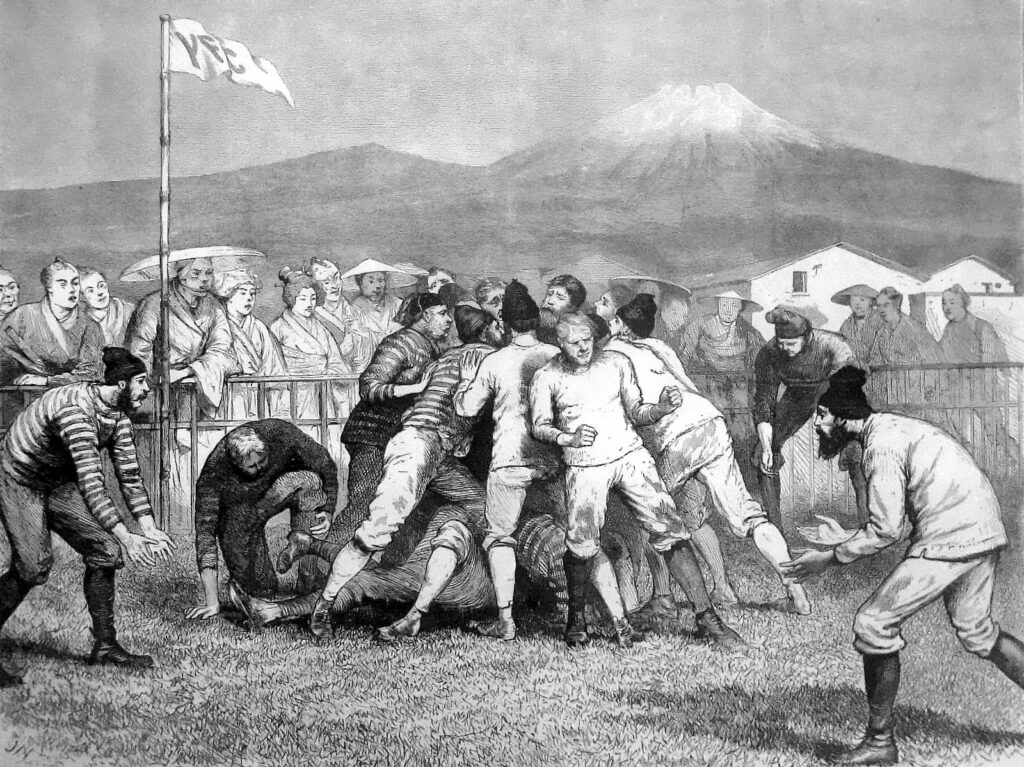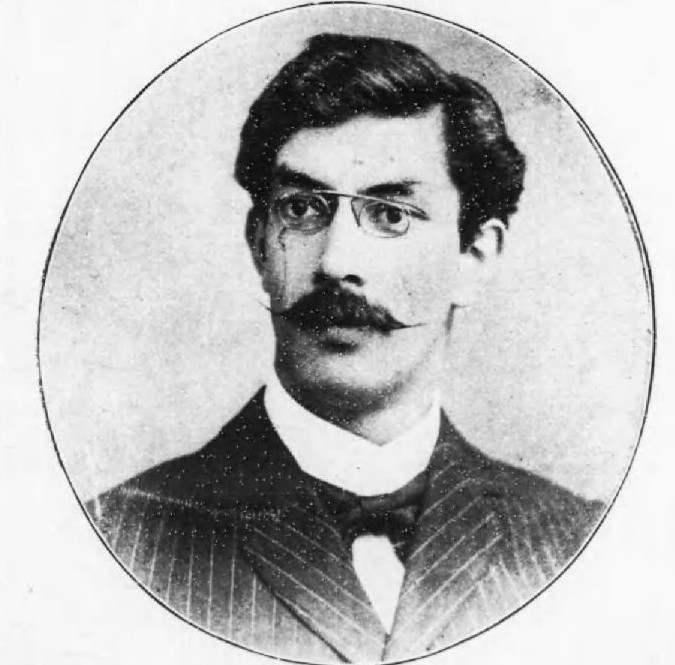
Edward Bramwell Clarke (1874-1934), a Briton born in Yokohama, is remembered as one of the people who introduced rugby to Japan, and his name was often seen in news articles related to the 2019 Rugby World Cup.
A graduate of Corpus Christi College, Cambridge University, Clarke was also an intellectual giant. Having returned to Japan, he started his teaching career at Keio Gijuku University in 1899. He also taught at several schools including the First Higher School of Tokyo, where novelist Soseki Natsume was among his colleagues.
However, it was not until 1913 that the Tokyo-based educator got a foothold in Kyoto. His teaching career in the city started at the Third Higher School. In 1916, he was appointed, alongside Tatsuo Kuriyagawa as successor to Bin Ueda, who had taught English literature at Kyoto Imperial University (now Kyoto University).
Clarke dedicated himself to teaching students about English literature and its history. As recalled by his students, the Briton called himself a Victorian, liked to take a close look at books by Alfred Tennyson, George Meredith, Robert Browning and Rudyard Kipling, and esteemed Lafcadio Hearn, who had corrected Clarke’s compositions briefly in 1890 when the boy went to Victoria Public School in Yokohama.
A student of his recollects what the British professor was like at Kyoto Imperial University around 1919:
Unable to walk well, Prof. Clarke always went to school by rickshaw. Even during each ride, he could not stop reading. I never saw him there without dozens of books on the vehicle. The driver often yawned in the school yard while waiting for the return of his client. According to the rickshaw man, Prof. Clarke’s only hobby was to go just once every two weeks to his favourite barbershop on the premises of Kyoto Station in those days, and then dine at a restaurant on the second floor before going back home.
(Extract from an essay by Shuji Yamamoto in Kyoto Daigaku Bungakubu Gojunenshi (Fifty Years of the Faculty of Letters, Kyoto University) (1956)
Rugby was of much significance to Clarke until 1907, when he was forced to have his right leg amputated due to severe rheumatism. Thereafter his athletic vigour turned into energy to study English literature.
Meanwhile, a Japanese who studied under Clarke for 22 years wrote his recollection of the British educator:
I am sure that no one is as willing to practice self-sacrifice as Prof. Clarke, in order that everyone can know the enjoyment of learning and the pleasure of knowledge. However busy he was or whenever he was sick in bed, he took the trouble to welcome any student for as long as he could and talk and listen to his guest. Without getting bored in the least, he answered any questions however trivial or troublesome. He had only this one hobby. Probably because of this, he was always kind enough to lend anyone, if they hoped to read, various rare books he had collected with considerable passion.
(Extracted from an essay dated April 29, 1934, by Hojin Yano in Shikyucho: Zuihitsushu (1948))
In Kobe Shimbun (May 17, 2016), there is a further clue to the character of Clarke. According to an article, he made meticulous and detailed corrections to any English writing by his students, no matter how bad it was. In addition, the rugby-loving professor was extremely strict with students who cheated with their thesis; just as the sport fostered his sense of fair play, he could not tolerate any wrongdoing in the playing field or dissertations.
On April 26, 1934, Clarke suffered a brain haemorrhage and passed away two days later. It was just days before his move to Kobe – his daughter and her children lived in the city and Arima, one of Japan’s renowned hot spring resort areas, was his favourite summer retreat. His funeral ceremony was held at St. Mary’s Church, Kyoto, near Heian Jingu shrine, as reported on the front page of Kyoto Imperial University Newspaper (May 5, 1934). He is buried in the Kobe Municipal Foreign Cemetery, and his gravestone bears the following epitaph:
Life’s race well run
Life’s work well done
Life’s victory won
Then cometh rest
Though he sleeps in Kobe, Kyoto is still connected to the professor through the Clarke Collection – more than 5,000 books on English literature in the Library of Graduate School of Letters, Kyoto University. There is also a bust, completed in 1935, of a man of such extraordinary knowledge that his friends nicknamed him ‘Encyclopaedia Britannica Clarke’ after the EBC initials of his name.

*********************
For an introduction to Yuki Yamauchi, please click here. For his piece on Portraits of Uji, click here. For his portrait of prewar academic critic, Tatsuo Kuriyagawa, click here. And for his piece on theatre and film director, Akira Nobuchi, click here. He has also written on the history of Gion Higashi.
